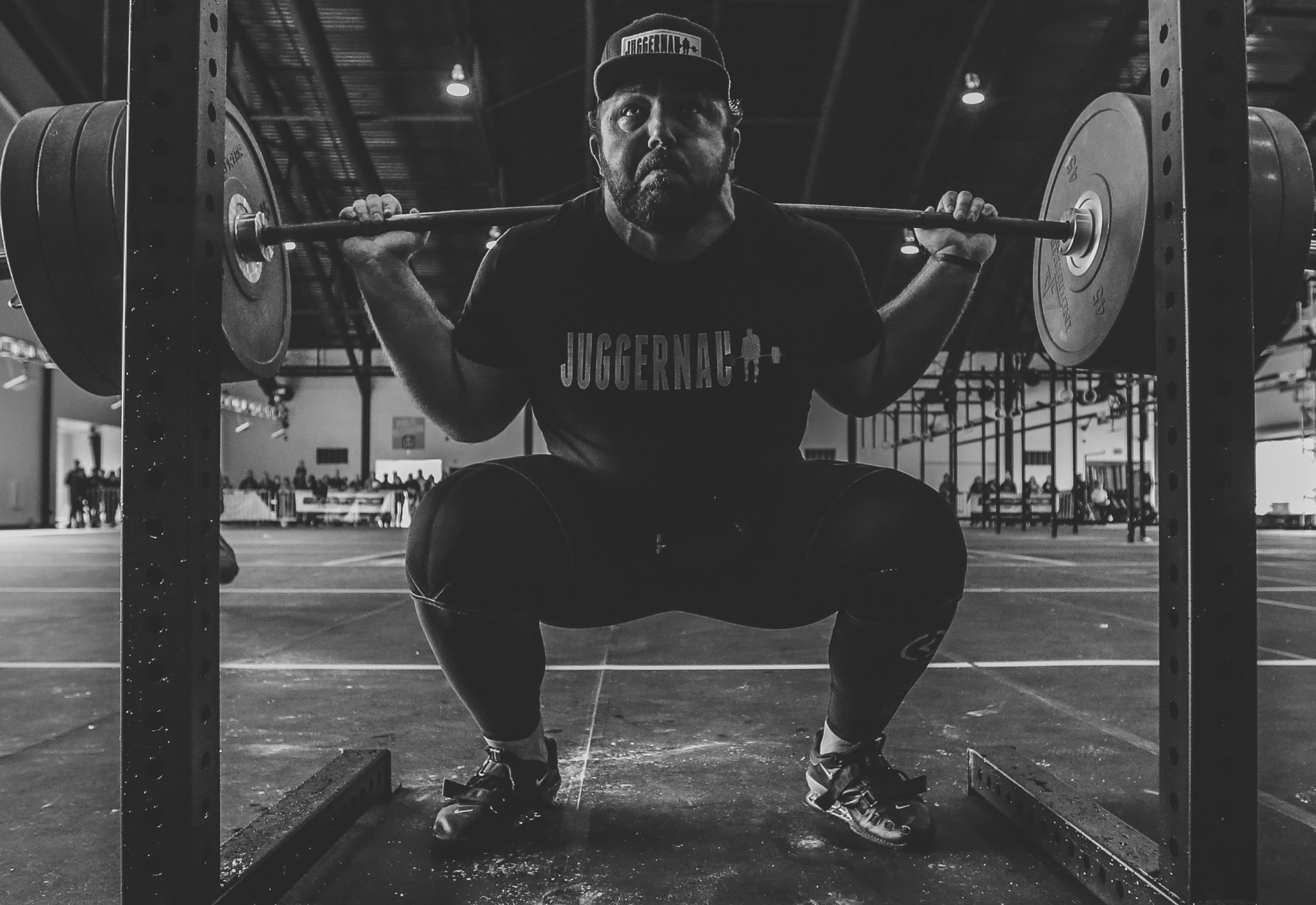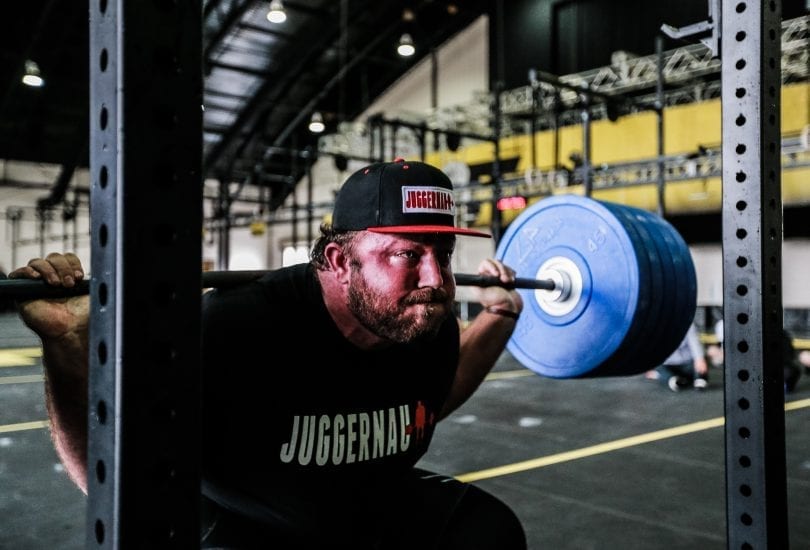Written by Chad Wesley Smith
In powerlifting, there is so much attention paid to the meet preparation process. Often, the potential value of an off-season is lost on many. Now of course, the off-season is still directed at ultimately improving your strength for a meet, so you could consider it “meet prep,” but I think the objective of this time is unique enough that it is worth making the distinction.
The main objective of an off-season period is to apply the concept of phase potentiation, which means that you will develop qualities that will enhance your next phase of training. So for the off-season to enhance the quality of our next phase of training (meet preparation/peaking), our focus should be increased muscle mass (and improved body composition), enhanced work capacity, and use of greater variation to address specific weaknesses.
Increased Muscle Mass
Increasing muscle mass is the simplest way to increase your strength potential. Doing this during the off-season is preferable because the higher rep sets and high total volume needed to best achieve this result, will introduce high fatigue levels and can compete with maximal strength development if they’re done during the same training day/week.
To put on the kind of serious muscle mass you need to dominate on the platform, you’ll likely need to do some hard and heavy sets of 10-20 reps. In the bigger picture of strength development, these can be great; but in the short term of the 2 months before a competition, they aren’t the optimal choice, so save these for the off-season.
If you are a lifter like me, who competes at a higher bodyweight and has a lot of muscle (but also a good amount of fat), your off-season may be better spent trying to lean out some rather than trying to pack on muscle. You’ll need to be in a caloric deficit to lose weight and in the vital weeks leading up to a meet, you don’t want to feel hungry, so save the fat loss for the off-season.
Enhanced Work Capacity
Enhancing work capacity will go hand-in-hand with increasing muscle mass. Enhanced work capacity is going to be achieved through high volumes of submaximal training.
Work capacity is an often-used term, and it is important that we make the distinction between general work capacity (the ability to do a bunch of anything) and special work capacity (the ability to do a bunch of a certain task). General work capacity is great and will increase your special work capacity to a degree. CrossFit is an excellent way to improve general work capacity but while running, rowing, jumping, lifting, sled dragging, and jumping rope are all excellent activities and will improve your fitness and your ability to train more for the squat, bench, and deadlift, they will not improve your special work capacity in as efficient a manner as doing more of the squat, bench, and deadlift and their variations. As you improve as a lifter, your training will need to become more and more specific, so for a while, you may derive great special work capacity benefits from very general training; but, it’s important that you understand that that won’t last forever. Learn more about the transition from lower to high qualification and how it reflects on your training in
[quote]Your off-season may be better spent trying to lean out some rather than trying to pack on muscle.[/quote]
Doing multiple sets of 4-10 reps in the 8 RPE range of squat, bench, and deadlift variations is going to be a great opportunity for you to improve your special work capacity, hone your technique, and build muscle. Another simple but effective way to increase your special work capacity will be to train with controlled rest periods. There are too many possible rest period options based on relative intensity of the work you’re doing and your current fitness levels for me to make a prescription here, so I would just say that you need to get out your stopwatch and keep yourself on consistent and challenging rest intervals.
Greater Variation
Variation and specificity are two sides of the same coin, so greater variation = lower specificity and vice versa. The most specific exercises that powerlifters can perform are the squat, bench, and deadlift for 1rms in competition equipment to competition standards. Any change to that, like different technique (stance, grip, bar position, tempo changes, etc), different equipment (no belt, no wraps, slingshot, etc), or different intensities (more reps) are all variations.
[full_image]

[/full_image]
As you get closer and closer to a meet, you need to train with more and more specificity (aka, less variation). During the off-season, you want to utilize greater variation to build any weak points that may develop from performing just the competition lifts as well as to avoid becoming bored or stagnant in your training.
As I mentioned above in the “Work Capacity” section, the more accomplished you become as a lifter, the more specific your training will need to be, so the smaller degrees of variation you’ll make to your movements during the off-season. (Including more bodybuilding movements in your training and making this a higher proportion of your total training in comparison to what you would do leading up to a meet.)
I’m currently in my own off-season period right now. This off-season will be 14 weeks in duration (6 weeks, deload, 6 weeks, deload) and the way I’m applying these concepts to my own training are:
- Hiring Renaissance Periodization to write my diet plan and hiring Pure Anabolic to prepare my meals in an effort to go from 355 pounds to 330 pounds.
- Training with a very high and challenging per-session volume with mostly sets of 3-10 reps to build my work capacity.
- Training the sumo deadlift, high bar Olympic squat, front squat, and overhead press for increased variation to build well-rounded strength. Also, the high bar and front squats will put less stress on my forearms/elbows than my normal low bar position and allow me to train my bench harder.
- I’ve utilized off-season training blocks from 6 to 14 weeks in duration prior to my last three meet training cycles and have made three consecutive total PRs. That correlation is no coincidence. A well-designed off-season will set you up for greater success in your meet training and meet performance. Apply the concepts here to build yourself an effective off-season program and enhance your long term lifting success.
Further Reading
Also, make sure to check out my Consolidation of Stressors series to learn more about long-term planning of training:














